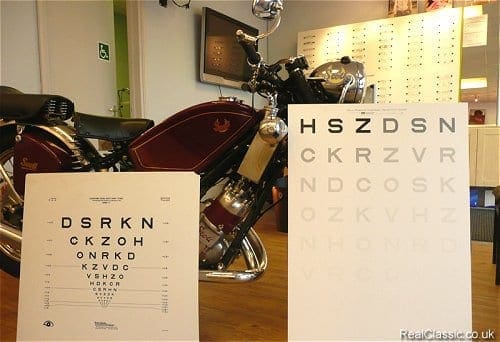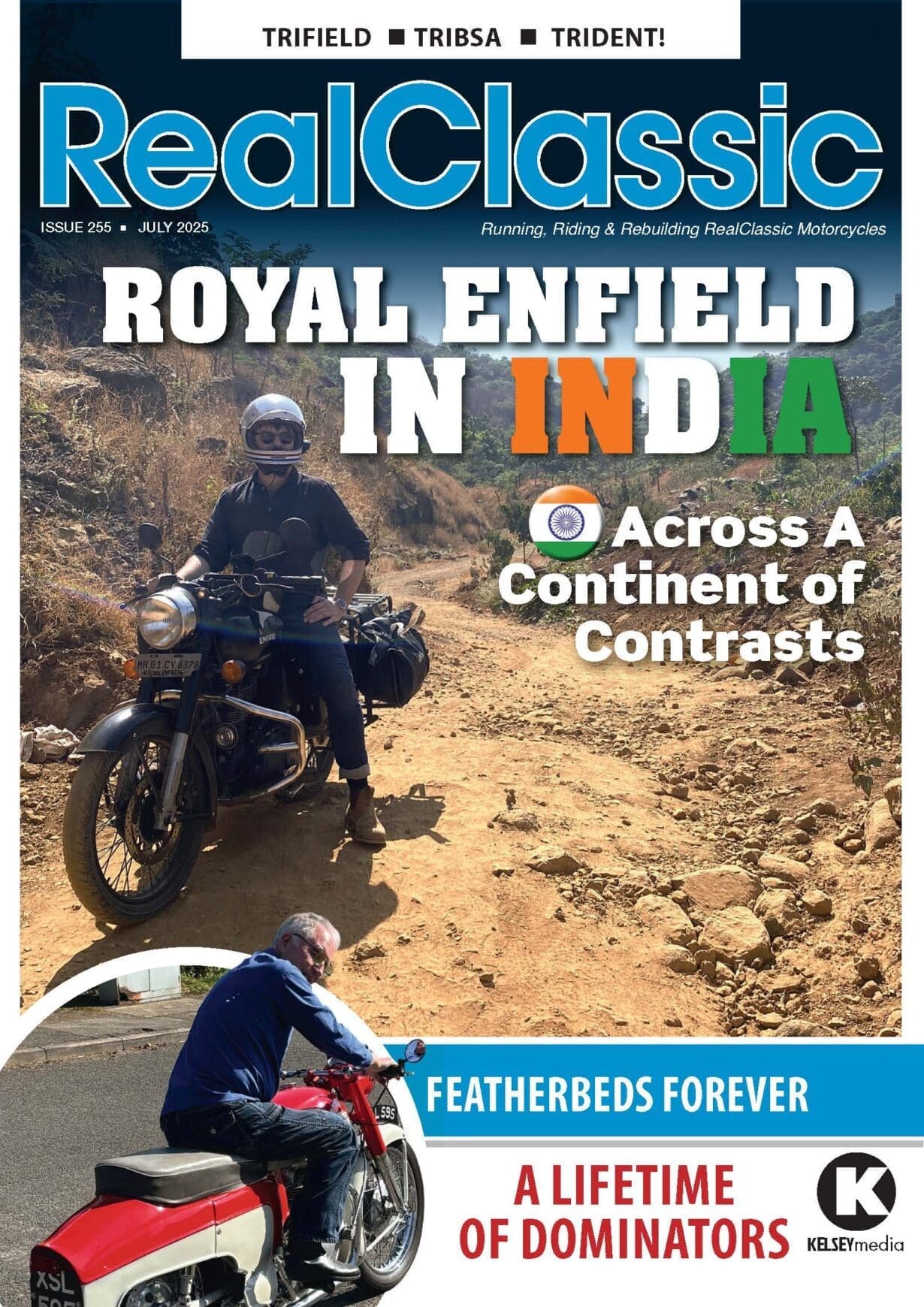
All roads users need clear vision to drive or ride safely. Motorcyclists have to cope with visors and goggles, and classic riders frequently suffer from deteriorating vision, too. Paul Miles, RC’s resident professional eye expert, finishes by looking at contact lenses and going under the knife…
To get the best results from this professional advice, you really need to have read Parts One, Two and Three, so go back and do it now if you haven’t already!
I don’t want to look like that bloke from ‘The Ipcress File’. Give me other options, Doctor Paul!
OK, you have two alternatives to spectacles: contact lenses and corrective surgery.
Contact lenses are a great choice for riding as they don’t steam up or break and your vision stays clear when it rains. It’s also better than when you take your helmet off and have forgotten that you still have your specs on (don’t worry, everyone’s done it at least once). Because lenses are less precise than spectacles in that they float on a thin layer of tears in a slightly variable way, they are better suited to a slightly higher prescription, say over about 1 dioptre. In other words, if you are pretty much dependant on your glasses, you could consider lenses as an option.
The vast majority of prescriptions can be satisfied using single-use, daily disposable soft lenses. These are fabulously comfortable lenses that require no cleaning or faff and can be used on demand without the need to build up a tolerance. Each of my bikes has a pair taped under the saddle, just in case I break my specs. There is a lot of choice out there and if you try lenses you should expect them to be perfectly comfortable for at least eight hours or so and your vision should be comparable to your glasses. If that’s not the case, try some other types, or find a different optician.
Some of the high street chains have a fairly limited range to choose from, for obvious reasons of profitability. A good independent practitioner will be able to access lenses from dozens of manufacturers and you should be able to find something to suit. There’s no compromise or adaptation, just wear and go! Contact lenses are really too complex a story for this article and need an in-depth one of their own, so I’ll stop there for now. Try them, you might be surprised.

Laser surgery is another technique that has become shrouded in myth and half truths. In essence, the eye is cut and then burnt with a laser, which induces scarring that bends the light, instead of relying on lenses to do that for you. In order to be considered as a candidate you need to have enough prescription to make it worthwhile, 3 dioptres is a reasonable guideline as is good general health. If successful, you can expect to be largely glasses free for distance for a few years (three to five is usual); there is usually a small bit of prescription left over requiring specs for say, night driving and your sight will regress noticeably over time.
Risks are much higher than, say, wearing contact lenses, however, and nearly all patients I’ve seen have significantly reduced contrast sensitivity leading to night driving issues as well as dry eyes. (RH of this parish can confirm that the early form of laser surgery, conducted some 20 years ago, lasted extremely well for 15 years but did indeed make her already poor night vision dangerously wonky).
I would advise at least three separate consultations at different clinics prior to committing to an irreversible surgical procedure. Be very cautious. Having said all that, patients that have undergone the procedure are often real zealots, usually despite not seeing as well as they did prior to surgery, I guess it just depends on how much you hate wearing glasses or lenses.
|
|
Goggles on Right Now…… |
Wind it up, already, I need to get out there!
Understand your vision, get it explained to you by the optometrist and ask questions.
If you have even a small prescription for distance, try it out in the street with the trial frame on to see if you notice a difference, every little helps and it might save your life.
Find a suitable frame and fit the most appropriate lenses for your riding. Remember, these are for riding and you may need something else for everyday use. Buy the very best lenses you can afford and ask for the written guarantees with regards to scratching, etc — cheaper lenses may well be coated and look very similar, but the performance differences are colossal. Always clean them properly and remember to buy a new visor when you take your P&J for its MOT each year.
Many opticians will do a free trial of contact lenses, have a go and see if they work for you.
Go back regularly and ask if there’s anything better than your current setup. Technology doubles every three years in optics, so make sure that you, and your optician, are up to date.
————–
The products I’ve mentioned in this article were recommended by my fantastic team as being the best for riding and have been used by me when out and about on a succession of old rattlers. Doubtless other opticians will have a different view, this is just my personal opinion. If any subscriber to RC has a specific question that their optician is unable to answer I’m sure that the clever folk at RC would be able to forward it to me (email TP at RealClassic.net) and I’d be happy to help f I can. I’m sorry if it got a little technical, it’s an important subject but not necessarily an exciting one!





